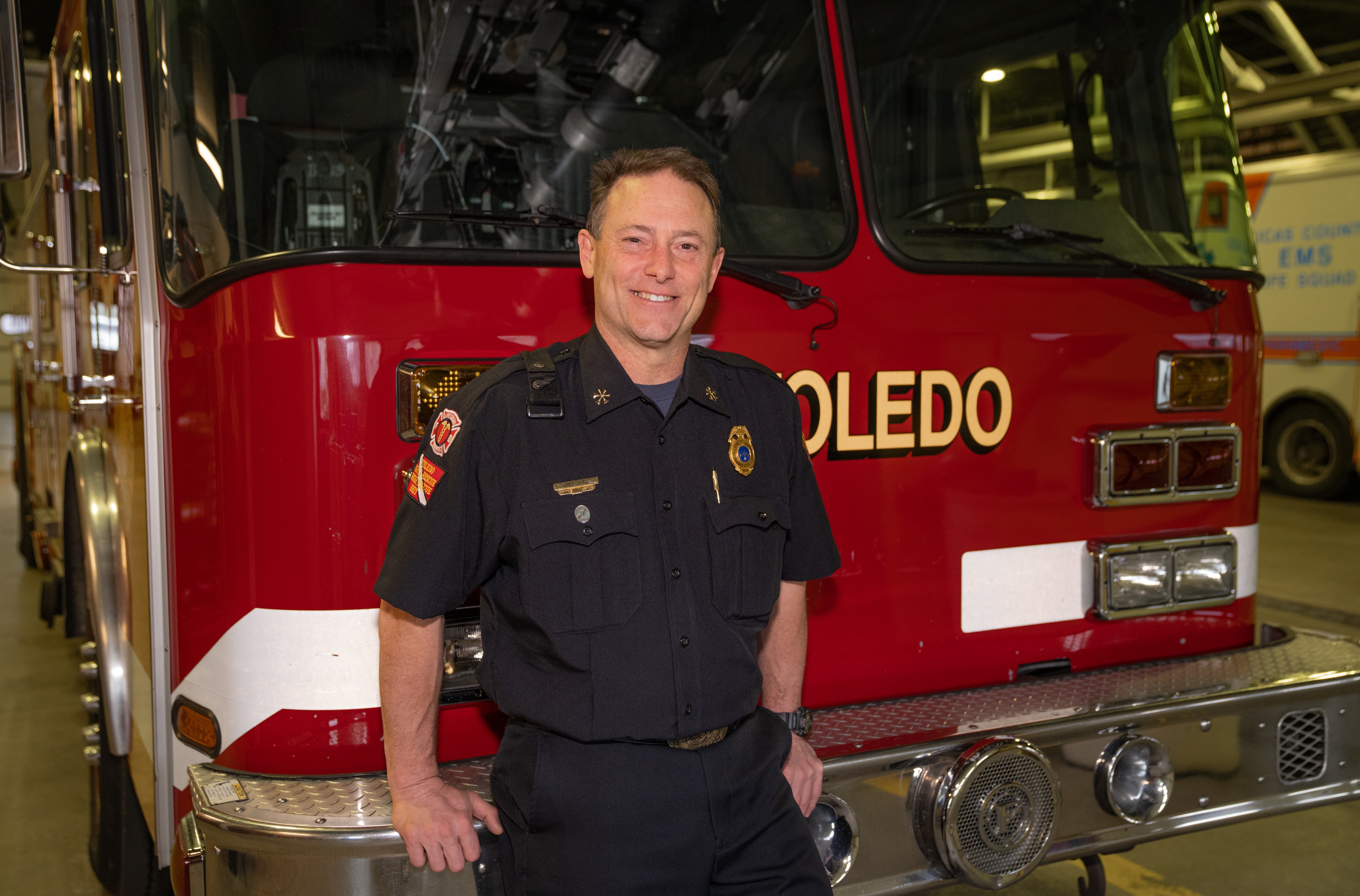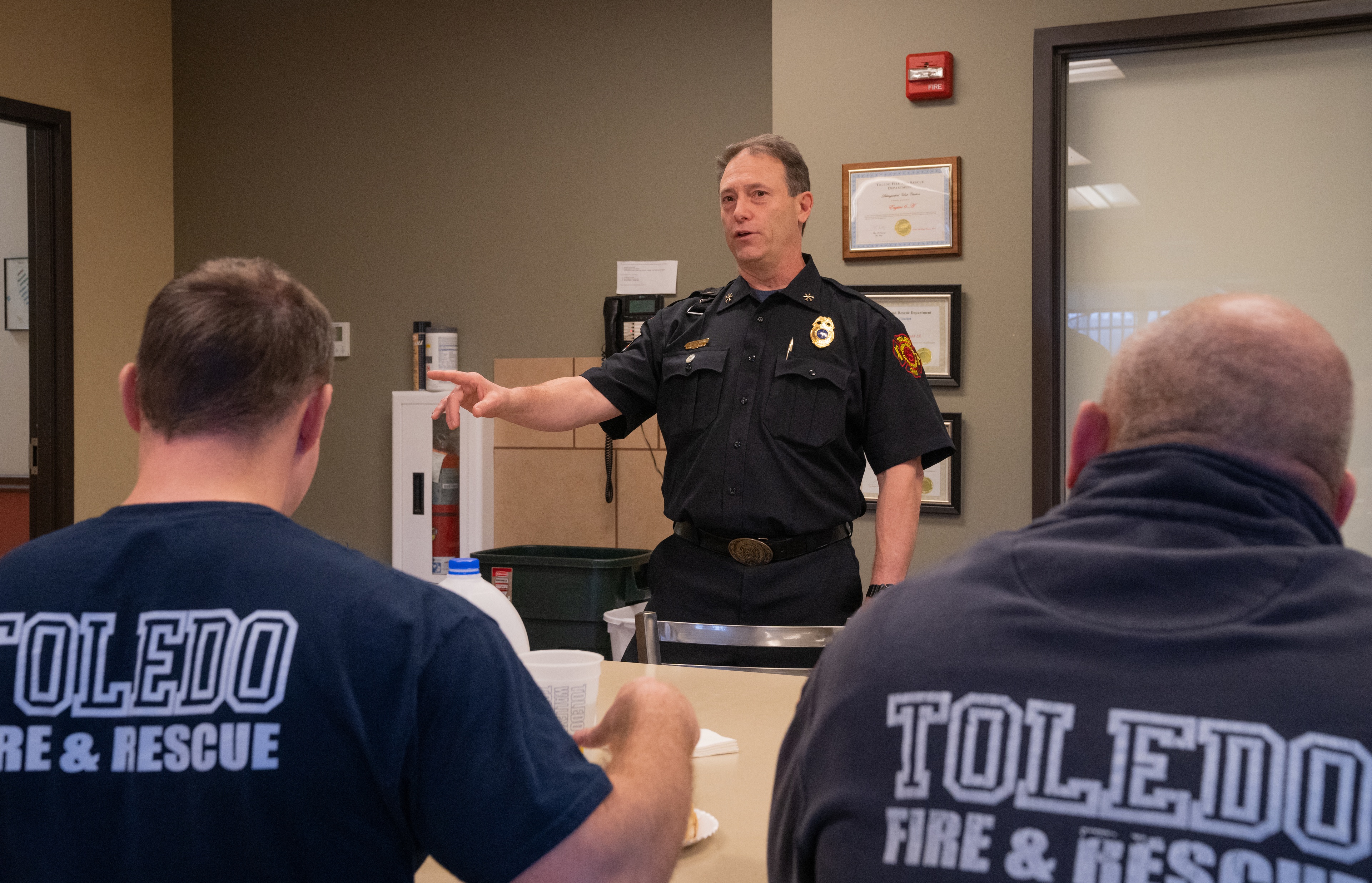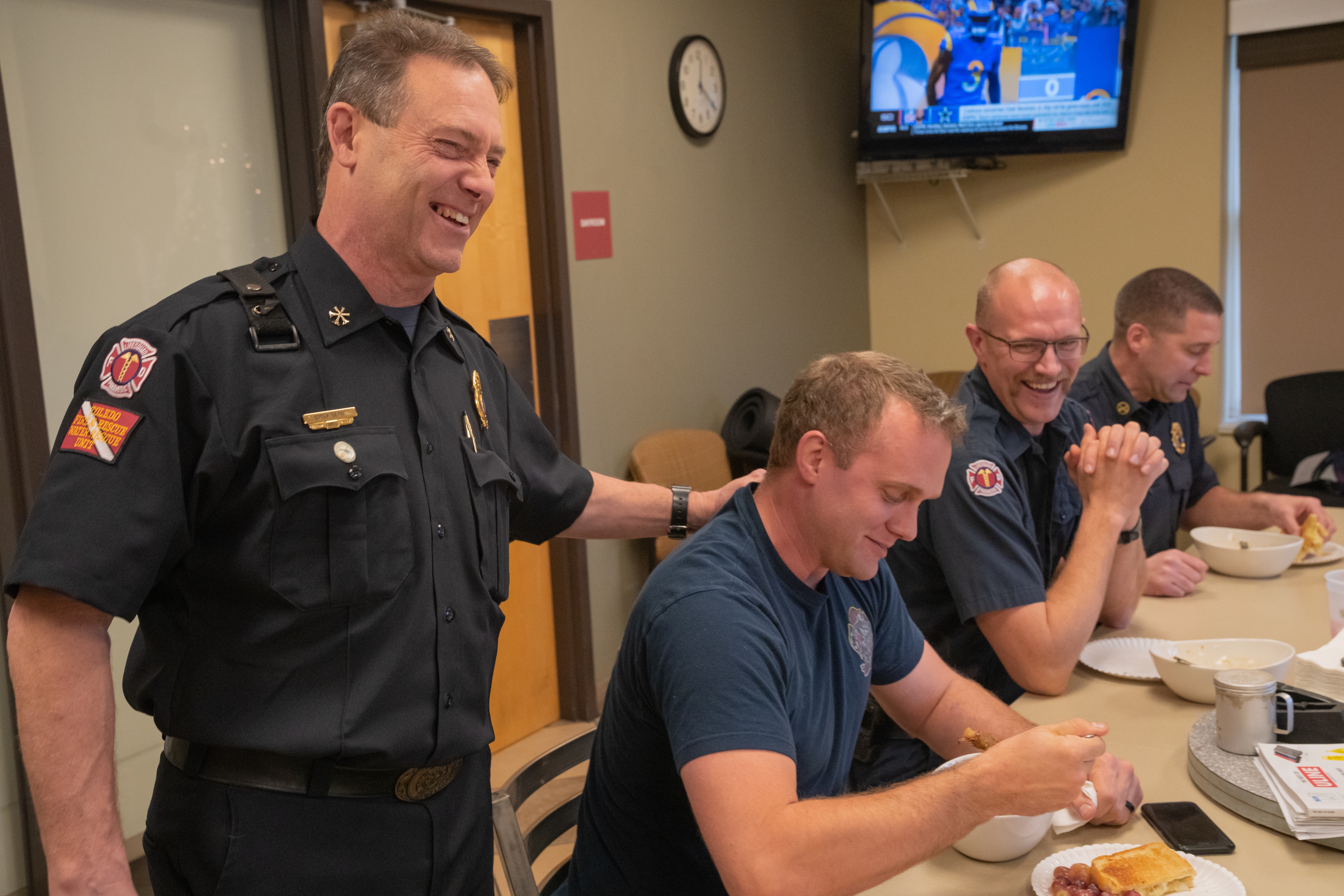
Class of 2022: Longtime Toledo firefighter to draw on experience, doctoral degree in leadership studies from BGSU in new role as deputy chief
Bryce Blair aims to strengthen leadership within the fire department
As a lifelong firefighter, Bryce Blair is fully aware of the critical need for strong and effective leadership in high-stress situations.
He was on the receiving end during his early years in the Toledo Fire and Rescue Department followed by decades of leadership experience as a lieutenant, captain, battalion chief and senior battalion chief.
“When people’s lives are on the line, leadership is paramount,” said Blair, recently promoted to deputy chief of operations of the department.
Blair, 61, is graduating this fall from Bowling Green State University with a doctor of education (Ed.D.) in leadership studies. He aims to use what he learned in the program and dissertation to help strengthen leadership within the fire department.
“Life is a learning process and should always be a learning process,” he said. “I’ve always been motivated to learn and better myself. No matter how much on-the-job experience a person has, at the end of the day, education helps us. I think I’m a better leader because of this program.”
Leading in difficult situations
Blair’s doctoral dissertation focused on in-extremis leadership, which is the way people lead in difficult and dangerous situations. As a part of his research, Blair interviewed exemplary members of 17 fire departments.
He wanted to understand their process for making decisions in life-threatening situations.
“My research was directed at understanding how these exceptional leaders lead when life and limb are at stake,” Blair said.

There were several points of consensus among the group regarding leadership approaches. According to Blair's research, those interviewed unanimously embraced a hands-on leadership style, shared risk and exhibited confidence and knowledge.
In situations where bodily harm is possible or people’s lives are at risk, Blair said effective leadership could make all the difference.
“It’s one thing to give someone a binder full of rules and tell them to follow it,” he said. “It’s another to be right alongside them as you’re running into a burning building. Leaders have to show the men and women they're leading that they’re willing to do what they ask of others.
“There’s a greater cohesiveness among team members when there’s a shared risk. You also have to know your trade and be respected for your knowledge. Nobody wants to take on a dangerous task if the person leading them doesn’t know what they’re doing.”
‘Education goes a long way’
Dr. Paul A. Johnson, associate professor in the School of Educational Foundations, Leadership and Policy in the College of Education and Human Development at BGSU, said he was impressed with Blair’s commitment and diligence throughout the program.
“He really dug deep into the research and background of what he was studying,” said Johnson, Blair's dissertation chair. “Balancing this program with an intense job and family commitments presented him with some challenges, but Bryce rose to that challenge and demonstrated a strong desire to produce a quality dissertation.
“It’s been a unique experience to help guide someone in researching leadership in life-threatening situations. He did a really in-depth study and did it very well.”
As deputy chief of operations, Blair oversees about 500 firefighters, the buildings and facilities bureau, fleet maintenance, safety bureau and honor guard.

He said one of his considerations when accepting the promotion to deputy chief was how it would affect his ability to go out on calls, something he thoroughly enjoys.
“As battalion chief and senior battalion chief, I would add myself to incidents that a battalion chief normally wouldn’t be sent on,” Blair said. “I wanted to be there and help, whether that meant starting an IV or loading a hose. I don’t need to, but I’m going to, and I think that inspires.”
Blair said that same mentality of leading by example is what motivated him to follow through with completing his doctorate, which he began in 2010. Firefighters may not be expected to pursue terminal degrees, but Blair said additional education is always beneficial.
“I’m a different person now than when I started,” he said.
“It was important for me to follow this through to the end. You don’t need a doctorate in fire services, but a formal education goes a long way in helping you see the world a little differently than you did before. Education can’t help but improve who we are, and I'm grateful to BGSU for making me a better leader.”
Related Stories
Media Contact | Michael Bratton | mbratto@bgsu.edu | 419-372-6349
Updated: 12/11/2023 10:38AM




